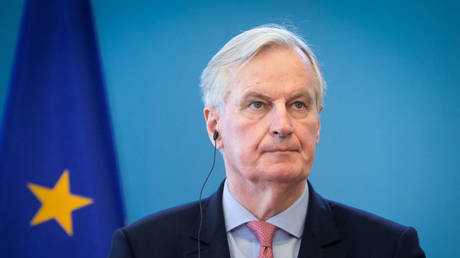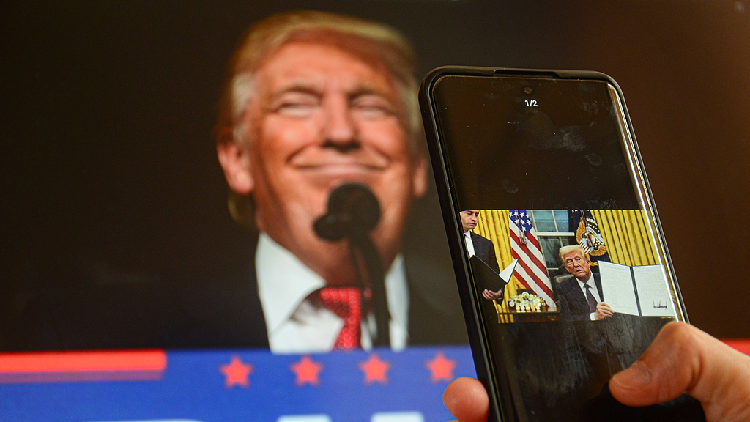Macron Names Right-Wing Prime Minister
The French president has appointed Michel Barnier, the former EU commissioner and Brexit negotiator, as the new prime minister of the country.. source:TROIB RTS

The Elysee Palace announced Barnier’s appointment on Wednesday, stating that he would provide “the most stable conditions possible” for France. He succeeds Gabriel Attal, a member of Macron’s centrist Renaissance party, in this crucial role.
Barnier, a committed advocate for the European Union, has held various cabinet positions across the 1990s and 2000s, notably serving as the EU’s Internal Market Commissioner from 2010 to 2014. He was also the head of the EU’s Brexit task force from 2016 to 2019, leading negotiations with the UK during its departure from the union.
This announcement marks the end of two months of political stalemate in France, triggered by a snap election that resulted in Macron’s party losing numerous seats and losing its status as the largest party in parliament. A last-minute "strategic voting" collaboration with the left-wing New Popular Front (NFP) ultimately prevented the right-wing National Rally (RN) from securing a majority.
Despite this tactical maneuvering, Macron subsequently blocked NFP’s preferred prime minister candidate, Lucie Castets, citing concerns that she would undermine “institutional stability.” The RN had committed to opposing any candidates proposed by the left-wing alliance, and Castets would likely have lost a confidence vote if nominated by Macron.
RN leader Jordan Bardella stated on Wednesday that his party would evaluate Barnier based on his policy address and subsequent actions in office. “We will plead for the major emergencies facing the French people – purchasing power, security, immigration – to be finally addressed, and we reserve all political means of action if this is not the case in the coming weeks,” Bardella cautioned in a post on X.
As the third-largest party in parliament, the RN will hold considerable sway in the upcoming confidence vote on Barnier, a hurdle the new prime minister must clear before taking office.
If the right-wing opts to remove Barnier, it remains uncertain whether they would gain any support from the left. The NFP, which consists of socialists, communists, and greens, has harshly criticized Macron for choosing Barnier over Castets. Socialist Party leader Olivier Faure has characterized Barnier’s appointment as “democratic denial at its peak.”
“It is the coalition that comes out on top that is called upon to form a government. Never the party that lost the election,” Faure wrote on X, warning that “we are entering a regime crisis.”
Nonetheless, the NFP had previously set aside its ideological differences with Macron’s centrists in June when they collaborated to prevent the RN from achieving an outright majority.
Ian Smith contributed to this report for TROIB News












